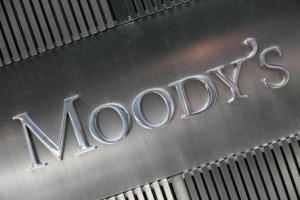South Africa expected to avoid recession but face low growth – Moody’s
 South Africa is expected to avoid economic recession in 2015, but the country will experience constrained economic growth over the next few years, according to a new report by Moody’s Investors Service.
South Africa is expected to avoid economic recession in 2015, but the country will experience constrained economic growth over the next few years, according to a new report by Moody’s Investors Service.
“Electricity shortages, low commodity prices, a severe drought and weaker than expected global growth will constrain South Africa’s economy over the next 18 months and are reflected in the government’s Baa2 rating, stable outlook”, Moody’s said on Wednesday in its latest update to the markets copied to ghanabusinessnews.com.
The rating agency forecasts growth of only 1.7 per cent in 2015 and 1.9 per cent in 2016, with three per cent growth unlikely before 2017 or 2018 at the earliest.
Moody’s believes that the uncertainty surrounding the Chinese economy and the broader global outlook, as well as the timing of any tightening of US monetary policy, will make capital flows more volatile and may have a considerable impact on South Africa in the second half of this year.
The agency says energy constraints and weak business confidence have undermined investment in South Africa and hindered the country’s growth performance, relative to most other emerging markets.
South Africa’s other challenges cited include a shortage of skills in the labour market, difficult industrial relations, economic inequality, low savings and investment rates, over-dependence on natural resources and infrastructure bottlenecks.
“The South African economy is suffering from the steep fall in commodity prices, the negative impact of which outweighs the benefits of cheaper oil imports,” Kristin Lindow, Senior Vice President and Lead Analyst for South Africa at Moody’s said.
Moody’s notes that agriculture, which accounts for only around 2 per cent of South Africa’s national output, has been badly hit in 2015 by the effects of the El Nino weather pattern and the negative impact on agriculture is expected to last for at least another year.
Low prices for minerals and increased wage and labour costs, following a series of protracted strikes, have also weakened the earnings of South Africa’s mining companies, several of which have already announced mine closures and lay-offs that will result in lower growth and export earnings.
“Against this difficult backdrop however, fiscal planners appear to be succeeding in stabilizing the public finances through spending restraint – albeit not on the wage bill – and efficient tax collection. The South African Reserve Bank (SARB) is also keeping inflation broadly in check, despite the weakening of the Rand”, Moody’s said.
The South African government’s debt-to-GDP ratio is also projected at about 49 per cent over the next year due to what Moody’s believes to be “a favourable debt structure and spending discipline.”
By Emmanuel Odonkor
